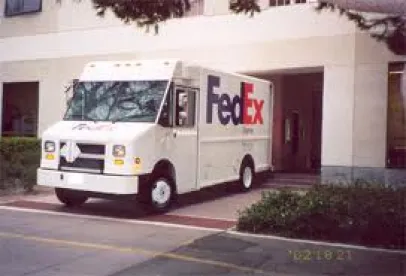Are your delivery drivers entitled to overtime and other benefits? Reiterating the importance of properly classifying employees, the Seventh Circuit Court of Appeals recently ruled that 479 FedEx delivery drivers were improperly classified as independent contractors and were actually employees under the applicable state law. All common carriers utilizing independent contractor drivers should review their agreements, policies and practices in light of this ruling.
Plaintiffs in Craig v. FedEx Ground Package Sys., Inc. are full-time FedEx delivery drivers in Kansas who claim they were improperly classified as independent contractors under Kansas state law. The drivers signed operating agreements that designated them as independent contractors, but the drivers argued FedEx exercised sufficient control over their work to make them employees. Specifically, the drivers argued, FedEx required them to appear clean-shaven, made them wear FedEx uniforms, required them to comply with strict vehicle appearance, specification and maintenance requirements, and assigned them service areas and work schedules. FedEx responded by pointing out that drivers could hire assistants or other drivers to deliver packages in the assigned service area, and argued that controlling the driver’s performance and vehicle appearance merely related to the results for which the company was contracting.
In 2005, Craig, which was originally filed in Kansas federal court, was transferred to the United States District Court for the Northern District of Indiana and consolidated with cases involving FedEx drivers in 40 other states.
In 2010, based largely on the independent contractor agreement, the district court granted summary judgment to FedEx and held that the plaintiff drivers were independent contractors. Following the decision in Craig, the district court granted summary judgment to FedEx in a number of the other consolidated cases involving drivers in different states.
Plaintiffs appealed, and in 2012, the Seventh Circuit certified two questions to the Kansas Supreme Court: 1) based on the undisputed facts presented to the district court, are the drivers employees as a matter of law under Kansas’ wage payment law; and 2) does the answer to the first question change if the drivers operate in more than one service area?
In October 2014, the Kansas Supreme Court issued an opinion finding that the drivers were employees as a matter of law, regardless of whether they operated in more than one service area. To analyze the employer-employee relationship, the court used a 20-factor test that considers the economic reality of the relationship while “maintaining the primary focus on the employer’s right to control.” After analyzing all 20 factors, the court concluded: “FedEx has established an employment relationship with its delivery drivers but dressed that relationship in independent contractor clothing. Even where the factors should point us toward finding that the drivers are independent businesspersons, FedEx’s control and micromanaging undermine the benefit that a driver should be able to reap from that arrangement.”
In July 2015, the Seventh Circuit Court of Appeals adopted the Kansas Supreme Court’s analysis and issued its opinion reversing the district court’s grant of summary judgment. The court of appeals also instructed the district court to enter judgment in favor of the drivers on the basis that they are employees of FedEx, and determine the most appropriate way to calculate damages.
The history of this litigation underscores the importance of common carriers properly classifying delivery drivers. Even though FedEx changed how it classified its delivery drivers in 2007, it has been defending misclassification claims for over 10 years. At least 20 other cases were on appeal to the Seventh Circuit at the time the opinion issued, and at least one group of FedEx drivers in California settled their claims for $228 million earlier this year.
This case also emphasizes the importance of understanding all wage and hour laws applicable to the workforce, including federal, state and local. Even though the Department of Labor may now be focused on the “economic realities” of an alleged independent contractor relationship, other jurisdictions may focus more on the control exerted by the company.
Drafting appropriate independent contractor agreements, and ensuring drivers control the manner and means of their performance under those agreements, can help common carriers avoid years of protracted litigation and millions of dollars in liability.


 />i
/>i

